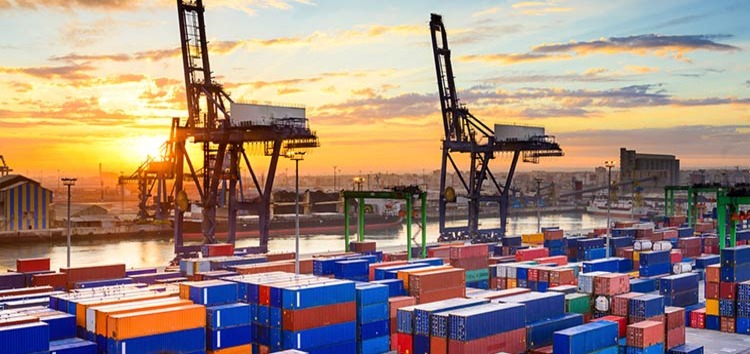“Investment and Trade for Africa’s Economic Development” – a public webinar held on Wednesday – targeted opportunities for cross-border collaboration between Africa and Germany.
The African Export-Import Bank announced its plans to sign a Memorandum of Understanding with German car manufacturers to establish an automotive industry in Africa.
The Germany-Africa Business Forum (GABF), Africa Oil & Power and the African Energy Chamber co-hosted the webinar, as part of a GABF cooperation-focused series.
The Germany-Africa Business Forum (GABF) hosted its second installment of its German-African cooperation-focused webinar series on Wednesday, aimed at outlining the opportunities for sustainable FDI between Germany and the African continent.
The panel comprised H.E. Günter Nooke, Africa Envoy to German Chancellor Angela Merkel; NJ Ayuk, Executive Chairman of the African Energy Chamber; and Rene Awambeng, Global Head Client Relationship at the African Export-Import Bank (Afreximbank).
Anchored by the theme of investment and trade for African economic development, the opening keynote was delivered by H.E. Nooke, and outlined four key success factors in driving Africa’s economic development: investment and business climate, transport, energy and technological infrastructure, available workforce, and access to markets.
Digitalization and green energy were advanced as two of the critical sectors for facilitating Africa’s economic and social development.
Africa contains a young, tech-savvy population, noted H.E. Nooke, translating to smooth technological adoption and enhanced opportunities for both consumers and businesses.
Highlighting efforts to expand global market reach, H.E. Nooke noted the anticipated benefits of the recently adopted African Continental Free Trade Agreement, signed by 53 African countries and already implemented by 30.
The agreement is set to boost intra-African trade, with the ultimate objective of creating a common market that empowers African nations.
Meanwhile, cross-border developments in clean energy have already been progressing.
This month, a German delegation visited the Democratic Republic of Congo to study opportunities related to the Inga III hydroelectric dam project.
Germany is eyeing major opportunities for hydrogen production, a clean fuel alternative, as well as wind, solar and hydropower resources scattered across the continent.
Germany is currently active in a range of investments across the continent.
The European leader played a major role in securing a $300 million facility from the United Nations Economic Commission for Africa.
The funds are aimed at creating jobs, reviving economies in a post-Covid-19 environment, and encouraging investment reforms to boost FDI.
Furthermore, Afreximbank will imminently announce the signature of a Memorandum of Understanding with German automotive manufacturers, such as Volkswagen, intended to create an African-driven automobile manufacturing strategy.
“We are looking to create a holistic approach to automotive manufacturing,” said Rene Awambeng. “Our goal is to build an entire value chain, with the support of Germany and Europe, in order to be able to design, build and market cars across Africa.”
In a bid to drive investor engagement in a variety of sectors, NJ Ayuk called for a change in the perception of risk associated with investing in Africa.
“We need to create an enabling environment for banks, financial institutions and investors to perceive Africa as a safe and profitable destination,” said Ayuk. “Rwanda paved the way and we have seen outstanding results. We have an obligation to make the change.”
Ayuk also appealed to European nations, such as Germany, to focus on investment rather than aid.
Investment enables the creation of synergies and partnerships and places project leaders in a position of accountability.
While aid is welcome in periods of crisis, noted Ayuk, it must not be the standard for sustainable, long-term business.
Awambeng underscored that long-term, affordable financing is available for Africa’s investment opportunities, combined with technical capacities and business support.
“Huge amounts of capital are available across the continent in all forms: equity, bank debt, development financial institutions, sovereign funds, among others. All we are missing are the people to make the transition happen.”
Latest Stories
-
CHAN 2024Q: Ghana’s Black Galaxies held by Nigeria in first-leg tie
41 minutes -
Dr Nduom hopeful defunct GN bank will be restored under Mahama administration
1 hour -
Bridget Bonnie celebrates NDC Victory, champions hope for women and youth
1 hour -
Shamima Muslim urges youth to lead Ghana’s renewal at 18Plus4NDC anniversary
2 hours -
Akufo-Addo condemns post-election violence, blames NDC
3 hours -
DAMC, Free Food Company, to distribute 10,000 packs of food to street kids
4 hours -
Kwame Boafo Akuffo: Court ruling on re-collation flawed
4 hours -
Samuel Yaw Adusei: The strategist behind NDC’s electoral security in Ashanti region
4 hours -
I’m confident posterity will judge my performance well – Akufo-Addo
4 hours -
Syria’s minorities seek security as country charts new future
5 hours -
Prof. Nana Aba Appiah Amfo re-appointed as Vice-Chancellor of the University of Ghana
5 hours -
German police probe market attack security and warnings
5 hours -
Grief and anger in Magdeburg after Christmas market attack
5 hours -
Baltasar Coin becomes first Ghanaian meme coin to hit DEX Screener at $100K market cap
6 hours -
EC blames re-collation of disputed results on widespread lawlessness by party supporters
6 hours

